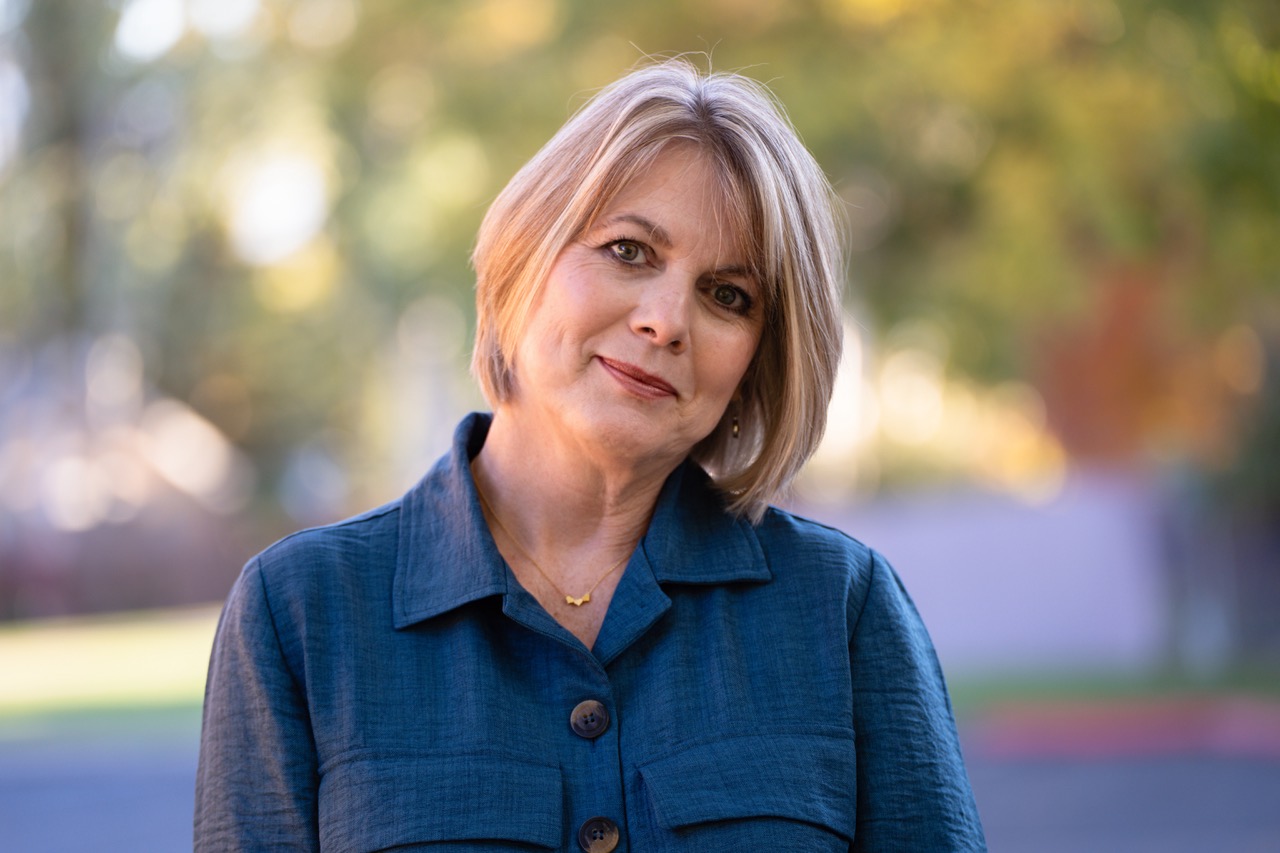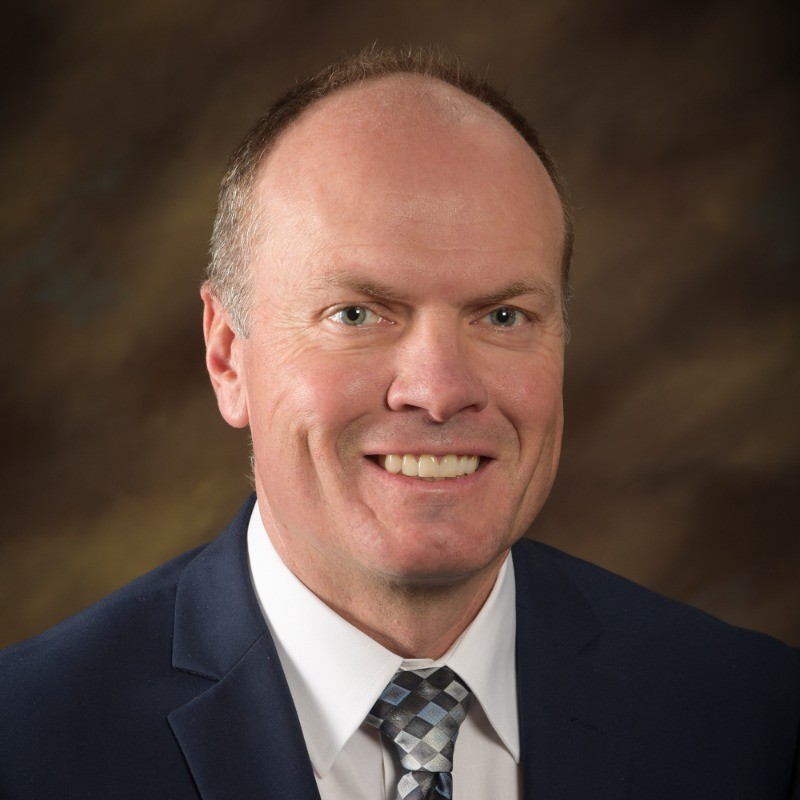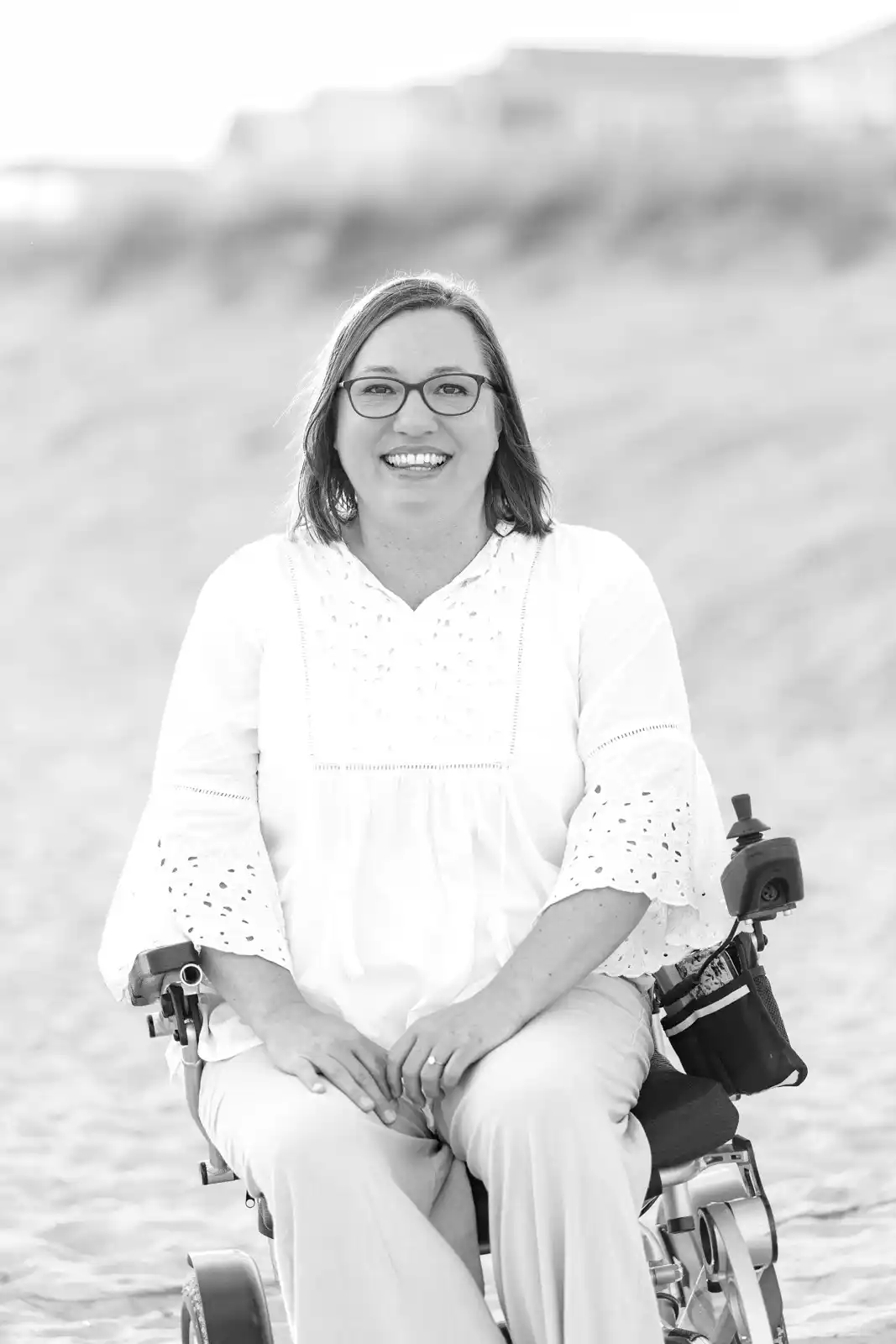How Divine Dreams Shape Unlikely Callings with Heidi Tucker

In a world where career paths seem predetermined and professional identities are carefully curated, it's remarkable to encounter someone whose life took a completely unexpected turn through divine intervention. This week, I had the privilege of speaking with Heidi Tucker, an award-winning author of five books whose journey from business major to faith storyteller defies conventional wisdom about calling and purpose.
Heidi's credentials speak for themselves: her latest work, "A Necessary Lie," recently won first place in the Praiseworthy Award and is currently in development for a worldwide feature film. Her other acclaimed titles include "Finding Hope in the Journey," "Servysong," "The Secret Keepers," and "Bridge of Miracles." As an inspirational speaker and faith storyteller, she has touched countless lives through her authentic portrayals of hope rising from despair.
What makes Heidi's story particularly compelling is not just her literary success, but the unlikely path that led her there. A former seminary teacher and business graduate from Arizona State University, she never aspired to be an author. Her transformation from someone who had "never put being an author on any bucket list" to a celebrated writer illustrates a profound truth about divine callings: they often come disguised as the very things we think we cannot or should not do. Her journey reveals how personal trials, family legacy, and spiritual experiences can converge to create unexpected purpose, showing us that sometimes our greatest contributions emerge from our deepest struggles and most reluctant obedience.
From Borrowed Faith to Personal Testimony
The foundation of authentic faith often begins with borrowed beliefs, and Heidi's spiritual journey exemplifies this natural progression. Growing up as the eldest of six children, she witnessed her parents' unwavering commitment to service and testimony. Her mother would load all six children into the car to deliver meals to families in need, transforming what could have been simple charity into powerful lessons about compassion in action. These early experiences planted seeds of understanding about what it means to live one's beliefs rather than simply profess them.
For years, Heidi freely admits, her testimony was essentially her father's testimony on loan. This borrowing of faith provided stability during her formative years, creating a spiritual framework that would later prove essential during times of crisis. She discovered that this phase of borrowed faith isn't a weakness but a necessary foundation, much like how children learn language by mimicking their parents before developing their own unique voice. The security of borrowed faith created space for her own spiritual experiences to eventually take root.
The transition from borrowed to personal faith rarely happens gradually or peacefully. As Heidi learned, it typically requires what she calls a "face plant" - those jarring life experiences that force us to find our own spiritual footing. These moments of crisis become the catalyst for authentic testimony because they strip away the luxury of relying on others' faith and demand that we discover whether our beliefs can sustain us through genuine hardship. It's in these valleys that borrowed faith either crumbles or transforms into something deeply personal and unshakeable.
The Crucible of Depression and Recovery
Heidi's first major "face plant" came in the form of severe post-partum depression following the birth of her first daughter. The depth of her struggle was visceral and overwhelming - she describes moments of hiding in fetal position under her baby's crib, bracing herself for when the child would wake and need care. This wasn't merely feeling overwhelmed or tired; it was a darkness so complete that basic functioning became a monumental challenge.
This experience taught her the profound difference between intellectual understanding of struggle and lived experience of it. As a natural list-maker and firstborn achiever, her initial approach to problems was systematic: identify the issue, create a plan, execute the solution. Depression shattered this framework, revealing that some challenges cannot be conquered through willpower and organization alone. The humbling reality of mental illness softened her judgment and opened her heart to the complexity of human suffering.
Her recovery process revealed the three distinct phases of prayer that many experience during extended trials. Initially, her prayers focused on immediate relief - pleading for the darkness to be lifted today, right now. When that didn't happen, her prayers evolved into requests for strength to endure - help getting through each day, each hour, each moment. Finally, as healing progressed, her prayers transformed into questions about purpose and growth - what could be learned from this experience, how could it serve others facing similar struggles. This progression mirrors the spiritual maturation that often emerges from our most difficult seasons.
A Legacy of Anonymous Service
The influence of Heidi's father extends far beyond the borrowed faith of her youth into a living example of Christ-like service that continues to shape her understanding of discipleship. His approach to helping others was characterized by secrecy and genuine care for dignity - he would notice someone homeless on the street, provide immediate help, then quietly arrange for ongoing support like warm coats without fanfare or recognition. These acts of service weren't performed for any audience; they flowed from a heart truly converted to seeing others as children of God deserving of love and respect.
Even while battling his own intense physical suffering from shingles in his eye - a condition so severe that medical professionals called it the worst case they had ever seen - he continued seeking ways to serve others. When ward members requested help with property cleanup that he physically couldn't provide, he found alternative ways to contribute by delivering beef from his cattle ranch to struggling families. His commitment to service transcended his personal circumstances, demonstrating that the desire to help others can persist even when we ourselves are in desperate need of help.
The Easter phone conversation between Heidi and her father during his worst suffering became a moment of profound spiritual connection. When she reminded him that the Savior had felt shingles in the garden of Gethsemane, both father and daughter were overcome with the reality of Christ's comprehensive suffering. This exchange illustrates how personal trials can become bridges to deeper understanding of the Atonement - not just as theological concept, but as lived reality that connects our pain to divine empathy and healing power.
From Reluctant Calling to Divine Partnership
The transformation from seminary teacher to published author began with an experience that challenged everything Heidi thought she knew about her future. Exhausted from years of early morning seminary teaching and feeling spiritually depleted, she fell asleep on a flight to Utah and experienced a vivid dream where she held a book - her book - in her hands. The dream was so realistic and spiritually charged that she woke feeling as if she had been "plugged into an electric outlet," but her immediate response was resistance and dismissal.
The divine confirmation process that followed demonstrates how God works with reluctant servants:
Multiple confirmations through various sources - speakers at church, radio DJs, even grocery store cashiers seemed to reference writing and authorship
Personal spiritual experiences - additional visions and promptings that built upon the initial dream
Unmistakable direct communication - the hiking encounter where strangers told her to "go get them"
Supernatural assistance - once she began writing, ideas flowed faster than she could capture them
The actual writing process revealed the collaborative nature of inspired work. Heidi describes having to keep her phone nearby to record voice messages of ideas that would come at unexpected moments. Scriptures seemed to leap off pages, providing exactly the references needed for each chapter. The experience taught her that when we align ourselves with divine purposes, we receive help that transcends our natural abilities and limitations.
This pattern repeated with each subsequent book, though never initiated by her own desire to write. Instead, people with stories to tell would find their way to her through what could only be described as divine orchestration. She learned that her role wasn't to hunt for stories but to remain open and prepared for the stories that needed to find her. This shift in perspective transformed her understanding of calling from personal ambition to divine stewardship.
Finding Purpose Through Others' Pain
Writing "A Necessary Lie," the story of North Korean defectors, initially felt like an overwhelming burden rather than an opportunity. Already tired from previous projects, Heidi's first instinct was to decline when approached about documenting this family's harrowing escape from oppression. However, after spending time with the couple and their two young sons, she discovered her deeper motivation: ensuring that these children would someday understand the magnitude of their parents' sacrifice for their freedom.
The research and interview process for each book requires Heidi to immerse herself completely in her subjects' experiences - spending months or years understanding not just the facts of their stories but the emotional landscape of their journeys. She refuses to begin writing until she can feel their story in her heart, recognizing that authentic storytelling requires more than surface-level information. This deep empathy allows her to capture not just events but the spiritual and emotional truth behind each person's experience.
Through documenting others' stories of survival, faith, and triumph, Heidi discovered how witnessing others' spiritual experiences strengthened her own testimony. Seeing how God's hand appeared in situation after situation - from helping a Kenyan singer reach America with fifty dollars to guiding North Korean escapees to safety - reinforced her understanding that divine intervention isn't reserved for biblical times but continues today. These stories became evidence that God's love and power operate consistently across cultures, circumstances, and individual challenges.
Your Invitation to Deeper Faith
Heidi's journey from reluctant business major to award-winning author offers several timeless truths about faith, calling, and spiritual growth. Her experiences remind us that authentic testimony often emerges from our most difficult seasons, that service truly becomes the action of our beliefs, and that God often calls us to purposes we never would have chosen for ourselves. Her analogy of Christ as a lighthouse - steady and reliable while we bounce around in life's waves - provides a beautiful framework for understanding how divine love remains constant even when our circumstances feel chaotic.
The stories she tells, from her father's anonymous acts of service to the courage of North Korean defectors seeking freedom for their children, illustrate universal themes of sacrifice, hope, and the generational impact of faithful choices. Her willingness to share her own struggles with depression and the complexity of developing personal faith creates space for others to acknowledge their own spiritual journey's messiness while still moving forward with trust.
Perhaps most importantly, Heidi's experience teaches us not to dismiss the spiritual promptings that seem too difficult or unlikely. Her initial resistance to becoming an author nearly prevented her from discovering her greatest contribution to others' healing and hope. If you're sensing a calling that feels impossible or outside your comfort zone, consider that God's greatest work often happens through people who feel unqualified but remain willing to trust His guidance.
What spiritual promptings have you been dismissing as too difficult or unlikely? How might your own "face plants" and struggles become sources of healing for others facing similar challenges? Heidi's story invites us to remain open to unexpected callings, to serve with anonymous generosity like her father, and to trust that our trials can become the very experiences that qualify us for our greatest contributions to God's work in the world.






Comments